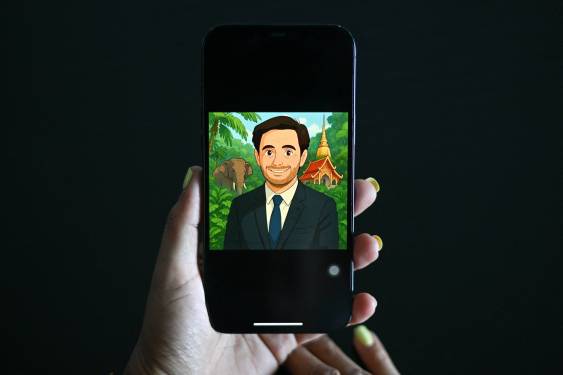AI Impact on Art: Fans Rally Against Unauthorized Creations

In recent weeks, the introduction of AI image generation in ChatGPT has ignited a fervor on social media. Users quickly discovered that the tool could produce images resembling the enchanting artwork characteristic of Studio Ghibli, a beloved animation studio. While fans of Ghibli anticipated a response from legendary director Hayao Miyazaki, the 84-year-old filmmaker has chosen not to comment publicly on the matter. Instead, the response from fans has been loud and clear in the Ghibli fan subreddit, where a strict ban against AI-generated artwork has been reinforced.
Moderators have noticed an increase in posts advocating for a prohibition against AI art within the community, with one moderator stating, “We don’t allow AI art. We haven’t allowed it since it became a thing.” The sentiment protecting the integrity of the original artwork stems from a belief that these AI creations, rather than being seen as tributes, infringe upon the copyrights of artists like Miyazaki, who have not sanctioned the use of their work for AI training.
This controversy is not confined to Studio Ghibli; it reflects a broader trend where numerous creators are grappling with how AI technologies are impacting artistic domains. Major news organizations, like The New York Times, have initiated lawsuits against tech firms, accusing them of utilizing copyrighted material to develop their AI models without appropriate compensation or permissions.
Notably, this discussion around AI and creativity is intensified with Miyazaki’s long-standing criticism of AI-generated art. In past interviews, he expressed disdain towards AI’s inability to capture genuine human experiences, emphasizing that the creators of such work fail to understand the essence of emotional depth. “I am utterly disgusted,” he remarked when shown AI-produced animations, highlighting the palpable divide in the arts community regarding the acceptance of AI technologies.
In addition to Ghibli, other artists from various backgrounds have also expressed concerns about similar AI-generated imitations of their styles, including instances where artists’ works are parodied in the styles of Pixar or Dr. Seuss. The reach of these AI tools extends to even political spheres, with social media accounts utilizing AI imagery in ways that can misrepresent or mock real situations, raising ethical questions about the deployment of these technologies.
As the internet witnesses a proliferation of AI-generated content, the conversation continues to evolve. OpenAI, which claims over 130 million users have collectively produced more than 700 million images with its AI capabilities, underscores a significant shift in how creativity is being defined. Among the debate, Brad Lightcap, OpenAI’s chief operating officer, has acknowledged the inspiring range of creativity that AI can foster. However, the artistic rights of original creators remain a critical point of contention in this ongoing dialogue.
The debate over AI’s role in art and creativity is likely to intensify as more organizations and artists confront the implications of these technologies. To explore further, check out these links: New York Times Lawsuit Against OpenAI and AI Art Controversies Explained. Stay informed about ongoing developments in this space.
